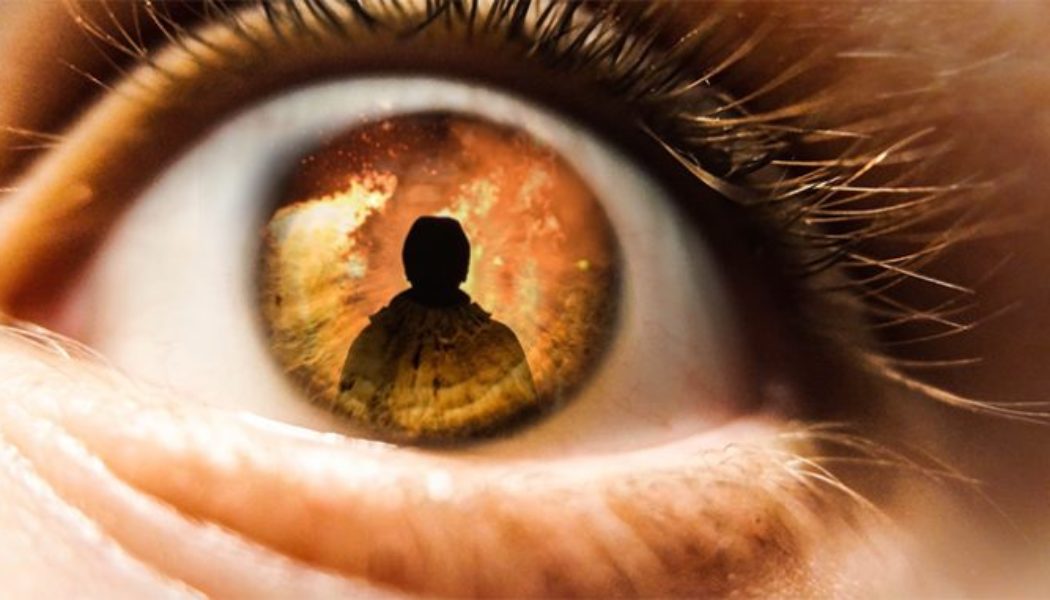
A common talking point among the woke is the claim that “woke” is just a term of abuse that has no clear meaning. Whether many of them really believe this or are just obfuscating is not clear, but in any event it isn’t true. I would suggest that what critics of wokeness have in mind is pretty obviously captured in the following definition: Wokeness is a paranoid delusional hyper-egalitarian mindset that tends to see oppression and injustice where they do not exist or greatly to exaggerate them where they do exist.
Examples would be: Characterizing as racist “microaggressions” behaviors that in fact are either perfectly innocuous or at worst just ordinary rudeness; condemning some economic outcome as a racist “inequity” despite there being no empirical evidence whatsoever that it is due to racism; condemning as “transphobic” recognition of the commonsense and scientific fact that sex is binary; condemning as “racist” the view that public policy should be color-blind and that racial discrimination is wrong whatever the race of the persons being discriminated against; condemning as “antigay” the view that it is not appropriate for grade schools to address matters of sexuality in the classroom without parental consent; and so on.
If you’re thinking “Wait, what’s wrong with any of that?,” you’re probably woke and should seek help, because these are deeply irrational attitudes. My book All One in Christ: A Catholic Critique of Racism and Critical Race Theory explains what is wrong with much that presents itself as “antiracist” but is in fact nothing of the kind. (You will find much of the book useful even if you are not Catholic, because the argumentation is largely of a philosophical and social scientific nature rather than a theological nature.)
By characterizing wokeness as paranoid and delusional, I am not flinging terms of abuse but describing real psychological features of the woke attitude. In their book The Coddling of the American Mind (which I say a bit about in my own book), Greg Lukianoff and Jonathan Haidt note that the frame of mind encouraged by woke ideas (Critical Race Theory, Gender Theory, “Social Justice Warrior” rhetoric and the like) is very similar to a mindset that Cognitive Behavioral Therapy identifies as a major cause of psychological disorders.
Features of this mindset include emotional reasoning, or letting our feelings determine how we interpret reality rather than letting reality determine whether our feelings are the appropriate ones; catastrophizing, or focusing obsessively on the imagined worst possible outcome rather than on what the evidence shows are more likely outcomes; overgeneralizing, or jumping to sweeping conclusions on the basis of one or a few incidents; dichotomous thinking, or seeing things in either-or terms when a more sober analysis would reveal more possibilities; mind reading, or jumping to conclusions about what other people are thinking; labeling, or slapping a simplistic description on some person or phenomenon that papers over its complexity; negative filtering and discounting positives, or looking only for confirming evidence for some pessimistic assumption while denying or downplaying confirming evidence that things are not in fact so bad; and blaming, or focusing on others as the sources of one’s negative feelings rather than taking responsibility for them oneself.
Obviously, the more thoroughly one is prone to these habits of thought, the more likely one is to see the world in excessively negative terms and to be miserable as a result.
Cognitive Behavioral Therapy thus aims to help patients identify these bad mental habits and to counteract them. But “wokeness” positively encourages all of these cognitive distortions. For example, it teaches emotional reasoning insofar as it pits personal “narratives” of oppression against the ideals of rationality and objectivity, and insofar as it makes the subjective reactions of offended people the measure of whether they are victims of “microaggressions.” It encourages blaming by treating accusations about microaggressions and other grievances as if they can never reasonably be regarded as stemming from oversensitivity or paranoia on the part of the person offended. It indulges in negative filtering and discounting positives insofar as it arbitrarily defines terms like “racism,” “sexism,” “transphobia,” “homophobia,” and the like so broadly that anything can be made to count as racist, sexist, transphobic, or homophobic, even what would historically have been regarded as paradigmatically egalitarian policies (such as color-blind or race-neutral policies, and opposition to all racial discrimination).
In the same way, it engages in labeling, by ignoring all the complex causes of disparities and the different motives behind various actions and policies, and simply slapping descriptions like “racist,” “sexist,” etc. on them. It promotes dichotomous thinking insofar as it insists that one either agrees with woke ideas or ought to be dismissed as “racist,” “transphobic,” etc. It exhibits catastrophizing in that it insists that anything short of implementing the most extreme of woke policy recommendations will leave us with an unjust society that has made little if any real progress. It encourages mind reading by imputing “racism,” “bigotry,” “hate,” “implicit bias,” “white fragility,” and other such attitudes to all critics, even in the absence of any objective evidence for these attributions. It overgeneralizes by treating any particular case of a real or perceived injustice as if it amounted to confirmation of the entire woke worldview.
In short, woke ideas positively encourage paranoid habits of mind, which are analogous to those exhibited by people suffering from depression, anxiety, and other psychological disorders. Looking at the world through woke lenses leads one to see oppression and injustice even where they do not exist, to feel strongly aggrieved at this imagined oppression and injustice, and then to treat the narrative of grievance that results as if it were confirming evidence of the reality of the imagined oppression and injustice.
The psychological factors underlying wokeness account for two characteristics of the woke that are very familiar to anyone who has ever dealt with them, but might seem incongruous. On the one hand, wokesters are extremely confident of their view of the world, thinking it so obviously correct that they cannot understand how anyone could possibly disagree with it. Yet, at the same time, they seem almost constitutionally incapable of calm and rational engagement with critics. They invariably attack the critic rather than the claims and arguments the critic raises.
Imagine a person suffering from the paranoid delusion that everyone is out to get him. Because he massively over-interprets other people’s behavior – reading malign motivations into the most innocuous remarks and actions – he thinks that the evidence that everyone is out to get him is overwhelming, even though in fact it is extremely slight at best. But, at the same time, precisely for that reason, he finds it impossible calmly and rationally to discuss the matter with anyone who disagrees with him. “It’s so obvious! If you can’t see it, you must be crazy! In fact, you must be part of the conspiracy too!” You might say that that such a paranoid delusional person thinks he’s become “woke” to the reality that everyone is out to get him, when in fact he’s lost in fantasy. Think of Russell Crowe’s portrayal of John Nash in the movie A Beautiful Mind – seeing plots and conspirators everywhere, including even places where literally no one exists.
The difference between wokeness and other forms of delusional paranoia is that the wokester’s delusions and paranoia reflect what I referred to above as a hyper-egalitarian view of the world. Notice that I am not saying that all forms of egalitarianism are bad. On the contrary, as I argue in All One in Christ, because human beings of all races have the same nature, they have the same basic rights and dignity. Hence it would, for example, be unjust for a government to protect the lives, liberties, and property rights of citizens of one race while not doing the same for citizens of other races. This would be a clear case of an unjust inequity.
What I am calling hyper-egalitarian is the tendency to suspect all inequalities of being per se unjust – for example, to suppose that if 10% of the population of a country is of a certain race yet less than 10% of the stockbrokers in that country are of that race, this amounts to a “racist” inequity that cannot be given an innocent explanation and must somehow be eliminated by governmental policy. (Think of Ibram X. Kendi’s famous remark: “When I see racial disparities, I see racism.”) Again, imagine Russell Crowe’s performance in A Beautiful Mind, but suppose that instead of seeing hidden messages, Soviet plots, and fellow spies everywhere, he saw racism, sexism, homophobia, transphobia, etc. everywhere and divided the world into the “bigots” who aimed to uphold this system of “intersectional” “oppression,” and the “allies” working together with him to subvert it. The delusion seems frighteningly real, but in fact is held in place by circular reasoning and ad hominem attacks on anyone who tries to convince him otherwise.
To be sure, I am not saying that all wokesters are as insane as the Russell Crowe character. Nor are all wokesters even as shrill as the stereotypical online Social Justice Warrior or Twitter mob. Like other forms of delusional paranoia, wokeness comes in degrees. But if you think that views like Critical Race Theory, Gender Theory, etc. are so obviously correct that no decent and well-informed person could possibly object to them, and find it at least difficult calmly and rationally to engage with anyone who thinks otherwise, you are woke. And precisely because you find it difficult calmly and rationally to entertain the possibility that you are wrong, your attitude is paradigmatically irrational.
(Editor’s note: This essay originally appeared on Dr. Feser’s blog in a slightly different form and is reprinted here with the author’s kind permission.)
• Related at CWR: “Countering disinformation about Critical Race Theory” (Aug 22, 2022) by Edward Feser
If you value the news and views Catholic World Report provides, please consider donating to support our efforts. Your contribution will help us continue to make CWR available to all readers worldwide for free, without a subscription. Thank you for your generosity!
Click here for more information on donating to CWR. Click here to sign up for our newsletter.








